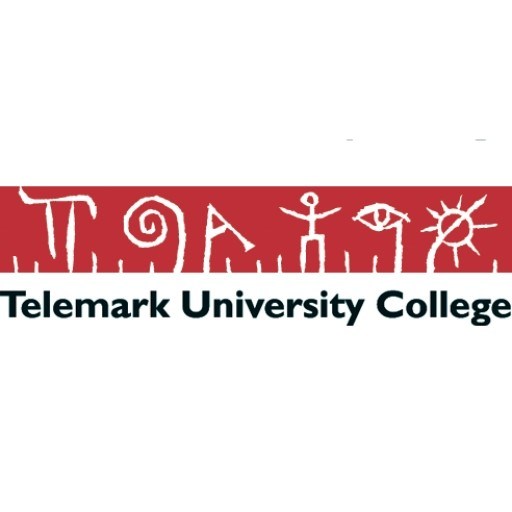Photos of university / #ntnu
Petroleum Engineering and Petroleum Geoscience at the Norwegian University of Science and Technology (NTNU) is a comprehensive and challenging Master’s degree program designed to equip students with the essential skills and knowledge required for the exploration, extraction, and production of oil and gas resources. This program combines advanced coursework, practical laboratory exercises, and industry-relevant projects to prepare graduates for a dynamic and evolving energy sector. Students will gain expertise in reservoir engineering, drilling technology, petrophysics, seismic data interpretation, and geoscience principles, fostering a multidisciplinary understanding of petroleum systems. The curriculum emphasizes sustainable and environmentally responsible practices, reflecting NTNU's commitment to innovation and the global energy transition. Students have access to state-of-the-art laboratories, simulation tools, and collaboration opportunities with industry partners, providing a strong foundation for careers within upstream petroleum activities, consultancy, research, or further academic pursuits. The program encourages critical thinking, problem-solving, and teamwork, crucial skills in complex and high-stakes operational environments. Graduates of Petroleum Engineering and Petroleum Geoscience will be prepared to contribute to the responsible development of petroleum resources, ensuring efficiency, safety, and sustainability. With Norway's prominent position in the global oil and gas industry, students benefit from unique insights into Arctic and offshore exploration, digital technology applications, and innovative extraction techniques. The program also promotes international perspectives, preparing students for careers worldwide. Overall, this master’s program at NTNU provides a rigorous and industry-focused education for future leaders in petroleum engineering and geoscience, supporting Norway’s and the world’s ongoing energy challenges.
Petroleum Engineering and Petroleum Geoscience at the Norwegian University of Science and Technology (NTNU) is a comprehensive and innovative master's degree programme designed to prepare students for a dynamic and evolving industry. The programme provides in-depth knowledge of upstream petroleum activities, combining geosciences, reservoir engineering, drilling, production, and economic considerations to equip graduates with the skills required to optimize oil and gas extraction processes responsibly and efficiently. Students will explore the characteristics of hydrocarbon reservoirs, subsurface geology, and the geophysical methods used to locate and assess hydrocarbon deposits. The curriculum also emphasizes advanced reservoir modeling, simulation techniques, and the assessment of reservoir performance over time.
Throughout the programme, students gain hands-on experience through laboratory work, field studies, and industry collaborations, ensuring practical understanding alongside theoretical foundations. Critical topics include well design and drilling, flow assurance, health, safety, and environment (HSE) concerns, and environmental impact assessments, preparing graduates to operate safely and sustainably within the industry. Additionally, the programme covers the latest digital technologies and data analysis methods, such as machine learning and big data analytics, that are transforming oil exploration and production.
NTNU's close cooperation with the industry offers students opportunities for internships, project work, and potential employment after graduation. The programme also emphasizes ethical considerations, sustainable development, and the importance of social responsibility in managing natural resources. Graduates will be well-equipped to work in various roles across international oil companies, service companies, consultancy firms, and research institutions. They will have the ability to analyze complex geological and engineering data, develop innovative solutions, and contribute to the efficient and environmentally responsible development of petroleum resources. The programme aims to foster lifelong learning and adaptability in a sector characterized by rapid technological and environmental changes, ensuring that students are prepared to meet future challenges in both the technical and managerial aspects of petroleum exploration and production.
The Petroleum Engineering and Petroleum Geoscience Master's programs at the Norwegian University of Science and Technology (NTNU) offer a variety of financing options to support students throughout their studies. Tuition fees for international students are applicable, but Norwegian and EU/EEA students typically do not pay tuition fees for master's degree programs at NTNU. However, students are advised to consider living expenses, which include accommodation, food, transportation, and study materials.
Many students finance their studies through a combination of personal funds, scholarships, and student loans. NTNU provides several scholarship opportunities, such as the NTNU International Student Scholarship, which aims to attract talented students from outside Norway. These scholarships often cover a portion of living costs and sometimes include tuition fee waivers for students from countries outside the EU/EEA. To be eligible, students must meet specific academic and application requirements and apply within designated deadlines.
In addition to NTNU-specific scholarships, students can seek financial aid from their home countries or international organizations that support students pursuing higher education abroad. The Norwegian State Educational Loan Fund (Lånekassen) offers loans and grants to Norwegian and some international students to help cover living costs, provided they meet certain criteria. This fund is a vital resource for students who wish to finance their studies independently.
Part-time work is another common method of financing studies for students in Norway. International students are permitted to work part-time during their studies, typically up to 20 hours per week during academic sessions, and full-time during holidays. This can help alleviate some financial burdens while gaining valuable work experience in the Norwegian labor market.
Students should also consider budgeting carefully for housing in Trondheim, which is the city where NTNU is located. Accommodation options include university dormitories, private rentals, and shared apartments, with costs varying depending on the choice. Students are encouraged to explore housing grants or subsidies if available.
In summary, financing a master's degree in Petroleum Engineering or Petroleum Geoscience at NTNU involves exploring scholarships, loans, part-time work, and careful budgeting for living expenses. The university's policies and Norwegian regulations facilitate accessible financial support options for both Norwegian and international students, aiming to make higher education in Norway attainable for talented individuals worldwide.
Petroleum Engineering at the Norwegian University of Science and Technology (NTNU) is a comprehensive programme designed to prepare students for a career in the oil and gas industry. The programme emphasizes technical knowledge, practical skills, and innovative approaches to resource extraction and processing. Students gain a strong foundation in core engineering principles, including fluid mechanics, geology, reservoir engineering, and drilling technology. Through coursework and laboratory work, students learn to analyze subsurface formations, design efficient extraction methods, and ensure safety and environmental sustainability in operations.
The curriculum incorporates advanced subjects such as petrophysics, production technology, and energy systems, reflecting the multidisciplinary nature of petroleum engineering. It also offers modules on digitalization, automation, and data analysis, preparing students for modern industry demands. Practical experience is a key component, with opportunities for internships, field exercises, and collaboration with industry partners, enabling students to apply theoretical knowledge in real-world contexts.
Research plays an integral role, with students encouraged to participate in cutting-edge projects related to reservoir simulation, enhanced recovery techniques, and environmental impact assessments. The programme is delivered by experienced faculty members who actively engage in research and industry consultancy, ensuring that learning is aligned with current industry standards and practices. Graduates of the programme are equipped to pursue careers in exploration, production, and management within the global energy sector or in research and development roles.
The programme typically spans three to four years for a full-degree bachelor’s or master’s level, with options for specialization in areas like drilling, reservoir management, or renewable energy integration. International exchange programmes and collaboration with industry further enhance student opportunities for global exposure and professional growth. Graduates of the programme are highly sought after, owing to NTNU’s reputation for engineering excellence and close ties with the petroleum industry.






